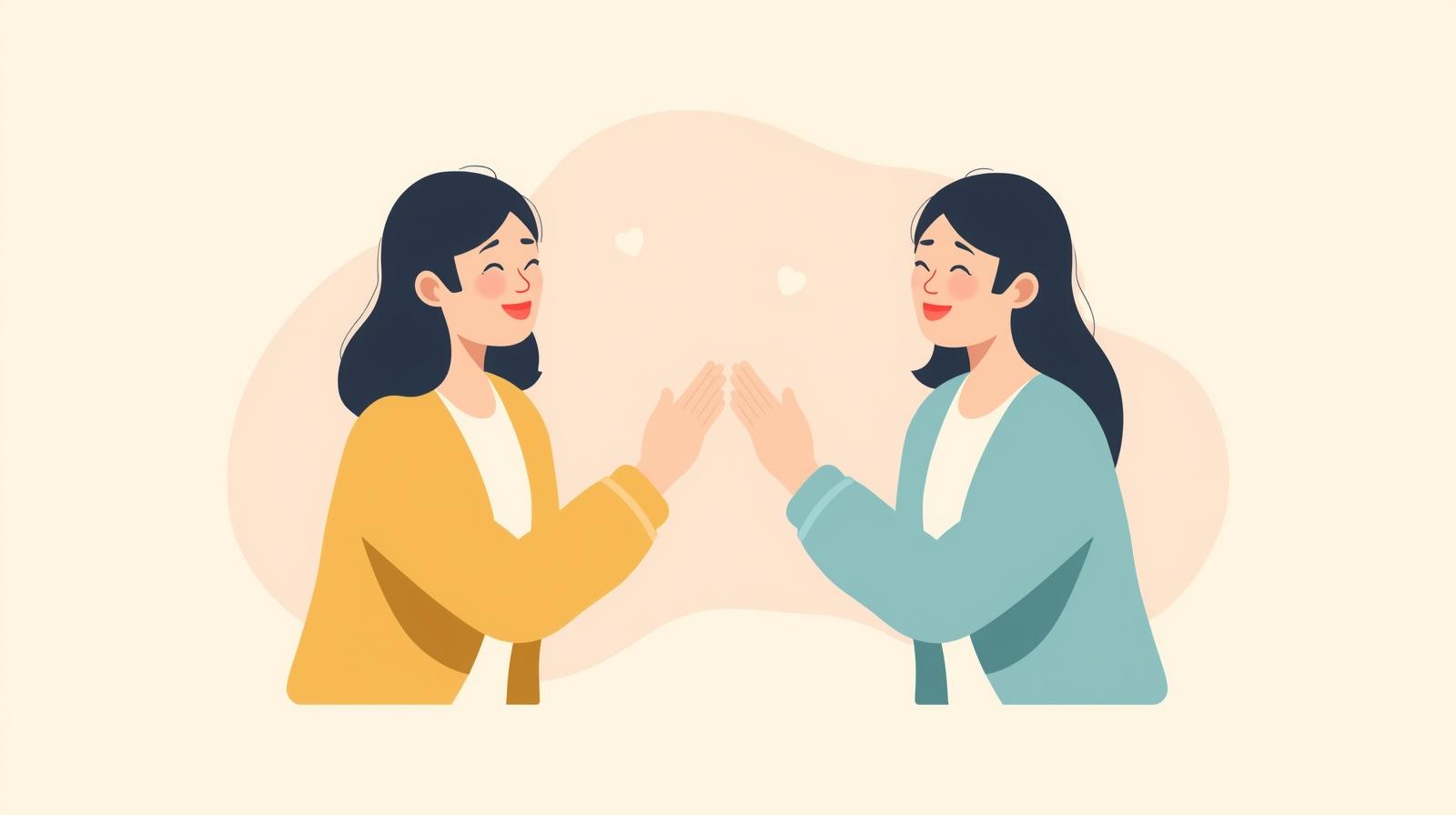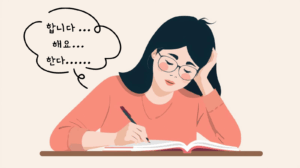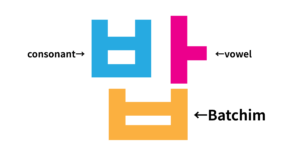When you start learning Korean, greetings are the first step.
“안녕하세요 (annyeonghaseyo)” is the classic one, but did you know that there are different ways to greet depending on the situation?
In this article, you’ll learn 15 useful Korean greetings—from polite expressions to casual phrases—along with cultural context so you can sound more natural in conversation.
💌 Want more K-POP deep dives like this?
Subscribe to Hello Bias Letters, our free Substack newsletter!
Each week, we unpack K-POP culture with care—from fan behavior to behind-the-scenes stories.
→ Join us here
Basic Korean Greetings
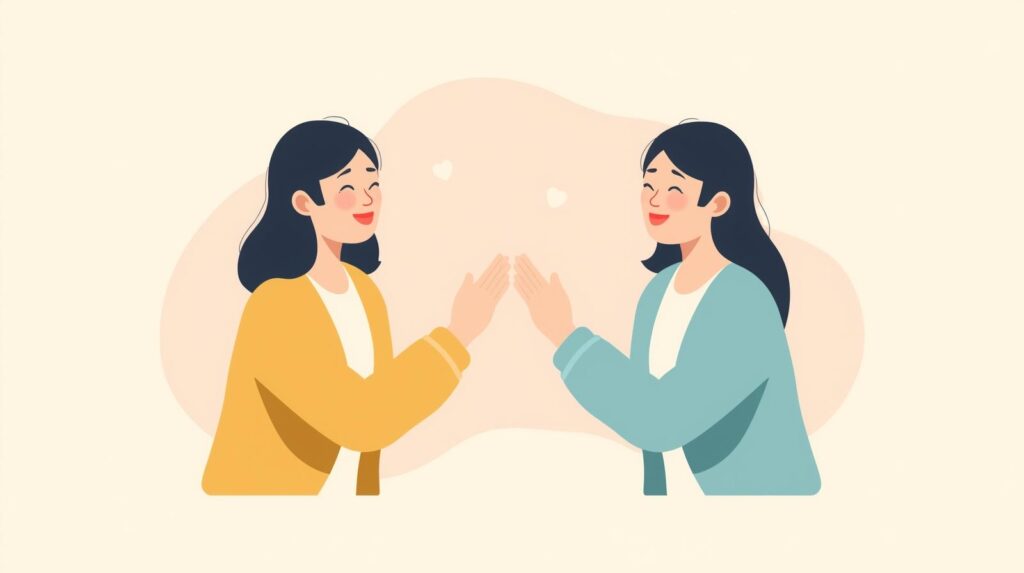
안녕하세요 (Annyeonghaseyo) — The Polite “Hello”
The most common greeting in Korean.
It’s a polite, all-purpose phrase that works in the morning, afternoon, or evening, and can be used with strangers or elders.
The ending –세요 makes the expression polite, so it’s good to remember this pattern.
안녕 (Annyeong) — A Casual “Hi”
Used between close friends (친한 친구) or to someone younger.
You’ll hear it often in K-POP idols’ conversations or Korean dramas.
To close friends, “안녕하세요” may sound too formal—“안녕” feels friendly and lighthearted.
It can also mean both “Hi” and “Bye,” and works at any time of day.
Greetings by Time of Day
Let’s look at some greetings you can use depending on the time of day.
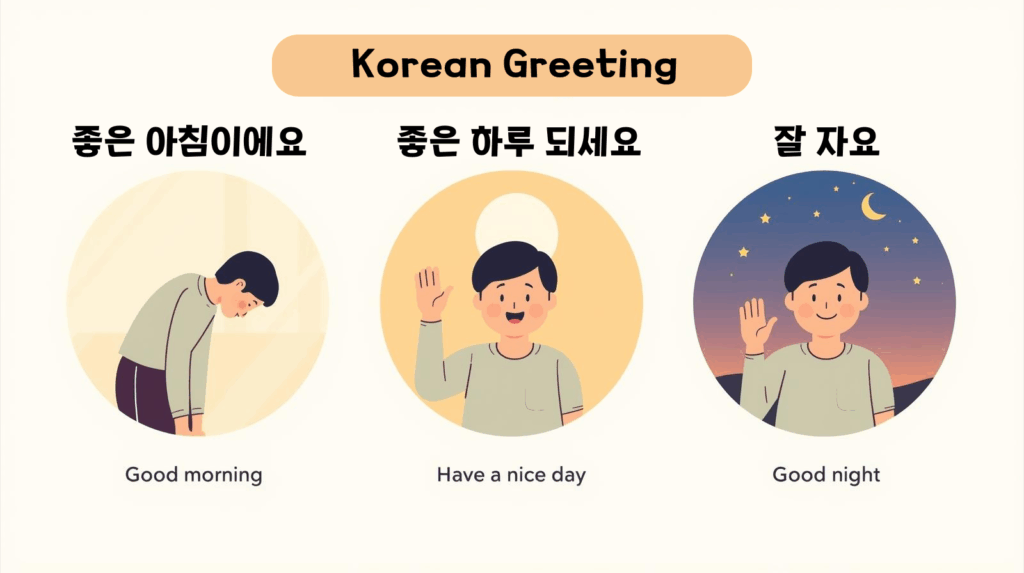
좋은 아침이에요 (Joeun achimieyo) — Good morning
Literally means “It’s a good morning.”
Similar to English “Good morning.”
A slight variation, “좋은 아침이네요,” carries the same meaning but sounds a bit more casual and friendly.
잘 자요 (Jal jayo) — Good night
Literally “sleep well.”
Remove “요” to make it casual: 잘 자 (jal ja), used with friends or family.
안녕히 주무세요 (Annyeonghi jumuseyo) — Good night (formal)
A respectful way to say “good night” to elders or superiors.
You might not use it often as a learner, but you’ll hear it in K-dramas—and maybe to your in-laws someday! 😉
Farewell Greetings
Korean farewells can be tricky—there are different phrases depending on who stays and who leaves.
안녕히 가세요 (Annyeonghi gaseyo) — Goodbye (to someone leaving)
Used when the other person is leaving.
Literally “Please go in peace.”
For example, when a friend leaves your home, you say this to them.
안녕히 계세요 (Annyeonghi gyeseyo) — Goodbye (to someone staying)
Used when you are the one leaving.
Literally “Please stay in peace.”
You’d say this when leaving your friend’s house.
안녕 (Annyeong) — Bye / See you
Surprisingly, “안녕” can also mean “Goodbye.”
Among friends, this is the most common farewell.
K-POP idols often say it at the end of livestreams or TV shows—listen for it next time!
Asking About Someone’s Well-Being
Just like in English, Koreans often ask “How are you?” as a casual greeting.
Here are a few phrases to know.
잘 지내요? (Jal jinaeyo?) — How are you?
Literally “Are you spending your days well?”
Used when meeting a friend or acquaintance.
Past tense 잘 지냈어요? means “How have you been?”—perfect after a long time apart.
For older people, use the honorifics:
- 잘 지내세요? → Are you doing well?
- 잘 지내셨어요? → Have you been well? (respectful)
오랜만이에요 (Oraenmanieyo) — Long time no see
From 오랜만 (“a long time”) + 이에요 (“is”).
Say it when you meet someone after a while.
밥 먹었어? (Bap meogeosseo?) — Did you eat?
In Korean culture, food is a big deal.
Among close friends, this phrase replaces “hello” and shows care—like asking “How are you?” or “Are you eating well?”
It’s more about concern than the literal question.
Thank-You and Appreciation Phrases
감사합니다 (Gamsahamnida) — Thank you
A formal and polite “thank you.”
Commonly used in shops, restaurants, and daily interactions.
고마워 (Gomawo) — Thanks
A casual “thank you” for friends or people your age.
Add “요” to make it slightly more polite: 고마워요 (gomawoyo).
First-Meeting Greetings
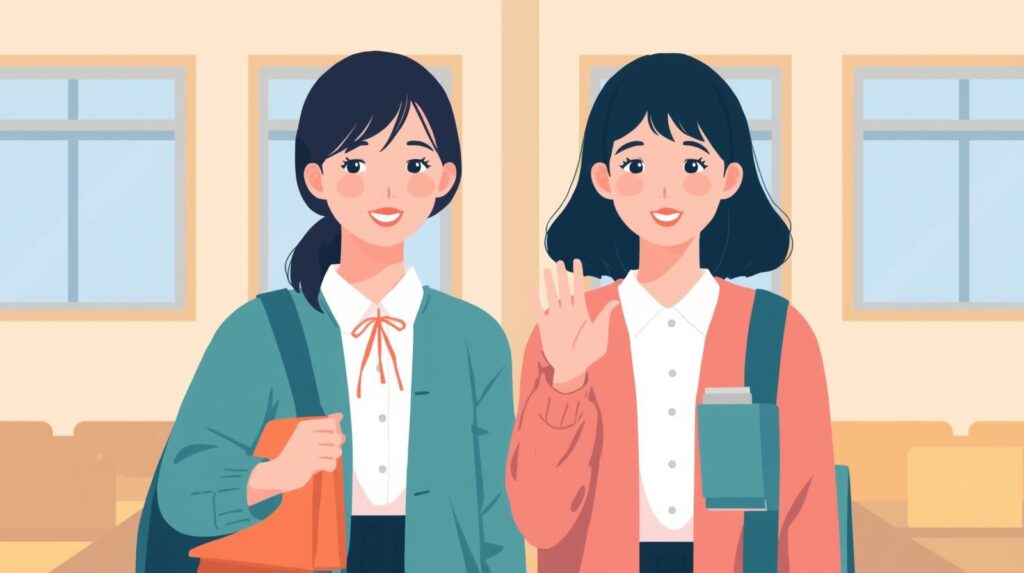
반갑습니다 (Bangapseumnida) — Nice to meet you
A standard polite phrase to use when meeting someone for the first time.
Perfect for introductions.
처음 뵙겠습니다 (Cheoeum boepgetseumnida) — Nice to meet you (formal)
A more respectful phrase, used in business or with elders.
Literally “I see you for the first time,” derived from the honorific verb 뵙다 (to see).
반가워요 (Bangawoyo) — Nice to meet you (casual)
A softer version of “반갑습니다.”
Use it with new friends or people around your age.
Summary
Korean greetings change depending on who you’re talking to and the situation.
Korean culture values age and hierarchy, so using casual language with older people can sound rude.
When in doubt, use the polite form—you’ll never go wrong with respect.
💌 Want to practice Korean through real conversations?
Subscribe to my Substack, where I share short skits using today’s greeting expressions!
💬 If you found this post helpful, consider supporting me with a coffee!
Your support keeps Hello Bias going ☕💛
👉 Buy Me a Coffee
